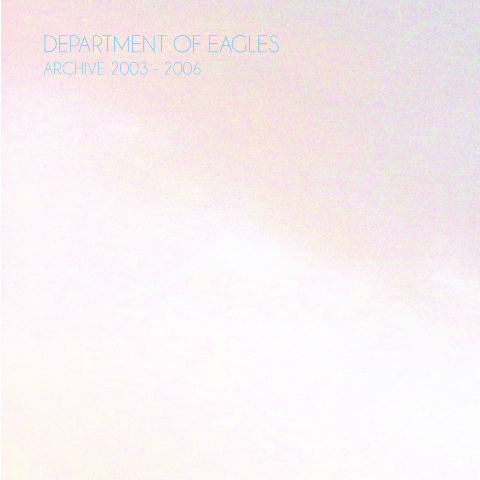One of the things that has always fascinated me about the Department of Eagles that the composition took place before, around and after one what must have been one of Rossen’s most trying moments, the death of his father in 2007. While I would steer anyone away from making the argument that the golden apple in the song of the same name is necessarily the apple of knowledge in Eden, and that the song is a mourning of Adam and Eve’s consuming the golden apple denying man eternal life. Or that the lamentation in “Brightest Minds” is necessarily a lamentation of passing minds and their conjoined passing bodies. These are available interpretations, but, by themselves, they are incomplete and over-controlling for listening and interpreting.
However, you can still use the idea of death to think about the album. For example, while there are a few completed songs on the album, roughly half of them are titled “Sketches,” incomplete experiments with a certain sonic mood and texture, analogous to the late lives which never have time to explore all their years. The full songs, the many lived lives have totality and completion and satisfy through resolution; the “Sketches” do not resolve save through their ending. However, don’t the full songs themselves resolve the same way, through ending? Maybe the only truly complete song is the one that never ends (“Styrofoam Chicken”).
While I was listening to the album and being sensitive to, among other things, the context of the work, I found myself thinking about two books which are contextually synonymous: Extremely Loud and Incredibly Close and What is the What. The first deals the plight of a child looking for meaning and identity after the death of his father in the 9/11 attacks. The second deals with growing up and escaping war-torn Sudan to find confortable benign anonymity of the United States. Both foreground loss as the primary surface conflict. Both use loss to tear away comforts taken for granted, until-then-unnoticed luxuries. The process of razing them is like a house fire burning away the insulation, couches, drywall and happily humming appliances and leaving behind a wood and steel frame. The only thing that passes the endurance test is the bare minimum.
Same thing here. The first thing that comes through in this Spartan approach is how sharp Rossen’s guitar sounds, and how sensitive his voice is next to it, the seemingly-cheaply mic’d-approach of “Flip.” It’s very homegrown, very unedited, very bare-minimum. The next is in the spry lyrics which tease and entice, but don’t seem to complete any specific feeling. “When is it gonna get easier?” Rossen asks the second time we’re in the practice room. He answers his own question with a sighing transition into the next question: “How long?” It’s sloppy, confusing, incomplete, irresponsible, and completely genuine with no dressing, no buffer between you and something mysterious. There’s something challenging about how surreal this all sounds, like touching mist.
Through the destruction of convention, Rossen and Nicolaus are free. They are a choir, a piano, a cacophony, a slight drum beat, a guitar, two people up too late in a loft trying to layer cello parts. Much like the dead person is now free of their body to become Earth, plants, animals and weather. In the album, sounds are broken down into essential components, their smallest forms. Rossen sighs welcome decomposition in “Deadly Disclosure,” when, at the close, he sighs: “Now finally the time has arrived/ Thank God.”
I guess if the album is about death and loss, it’s about metaphysics too. It’s about death as freeing the truest self/sound, and loss is a disclosure of the truest form. However old this argument may be, it sounds no less sweet in 2010.

